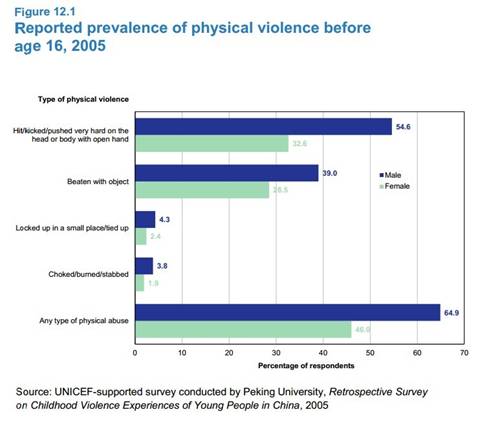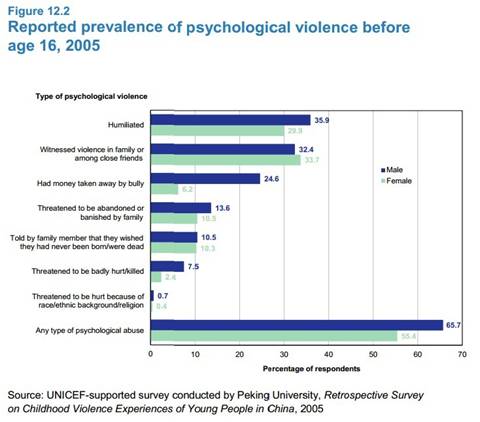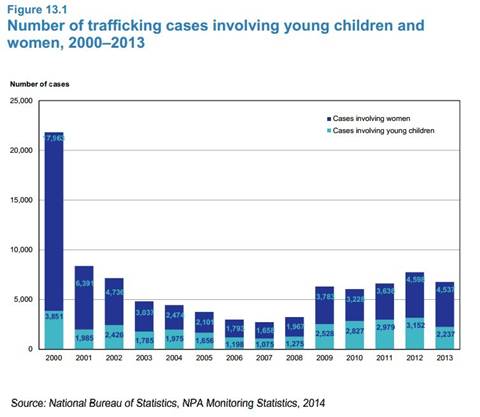UNICEF: Majority of Children Under 16 Experience Violence
china.org.cn by Victoria Cole, June 25, 2015 Adjust font size:
United Nations Children's Fund (UNICEF), along with the National Working Committee on Children and Women (NWCCW) and the National Bureau of Statistics (NBS), has published the 2014 "Children in Asia: An Atlas of Social Indicators", providing perspectives of the various situations of children in China.
With the help of many visual aids, this fourteen-section publication reports relevant socio-economic information, reflecting China's achievements and disparities for children and serves as a "comprehensive and detailed resource for relevant government departments, child rights practitioners and the general public."
Violence Against Children (Section 12)
WHO defines violence as "the intentional use of physical force or power, threatened or actual, against oneself, another person, or against a group or community, that either results in or has a high likelihood of resulting in injury, death, psychological harm, maldevelopment or deprivation."
A UNICEF supported survey in 2005 sampled approximately 3,591students enrolled in colleges and technical secondary schools in the Guangdong, Zhejiang, Hubei, Shaanxi and Heilongjiang provinces and Beijing.
In addition to respondents disclosing instances of physical and psychological abuse, reports of sexual abuse were also studied. 28% of females and 22% of males reported having experienced sexual violence before the age of 16, and the first incidence of sexual violence was most likely to occur between the ages of 13 and 15. Over 5% of respondents said someone had or tried to have sexual intercourse with them against their will, and the three main perpetrators of unwanted sexual intercourse were dating partners, classmates and relatives.

"55% of all respondents experienced one or more types of physical violence before the age of 16":
The three main perpetrators of physical violence against children were parents, teachers and classmates. Respondents reported being beaten most frequently between the ages of 10 and 12.

"60% of all respondents experienced one or more types of psychological violence before the age of 16":
The main perpetrators of humiliation against children were classmates, teachers and parents. Psychological violence was reported to be most frequent between the ages of 13 and 15.
Trafficking (Section 13)
China's first National Plan of Action to Combat Trafficking in Women and Children launched in 2007, was updated in 2013, detailing the anti-trafficking responsibilities of 32 ministries, and appointed the Ministry of Public Security as the coordinator of anti-trafficking efforts.
Much work remains to be done to prevent and respond to trafficking. Key interventions include raising community awareness, increasing the understanding and skills of law enforcement officials, court and judicial officers, social workers, health workers and the broader community on the need to respect the rights of trafficking victims in the rescue and rehabilitation process.

"Between 2000 and 2013, 92,851 cases of trafficking in women and children were recorded, with cases generally involving several victims":
Children are trafficked for purposes of illegal adoption, sexual exploitation and labour exploitation, with a greater risk of trafficking among migrant and left-behind children.